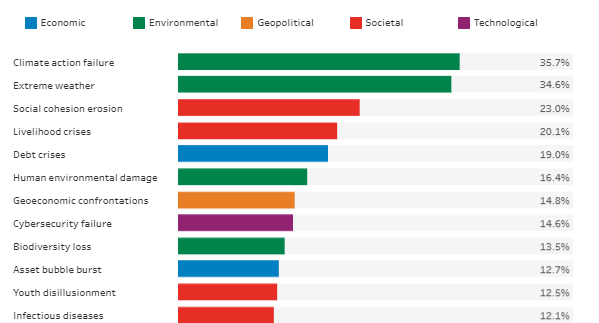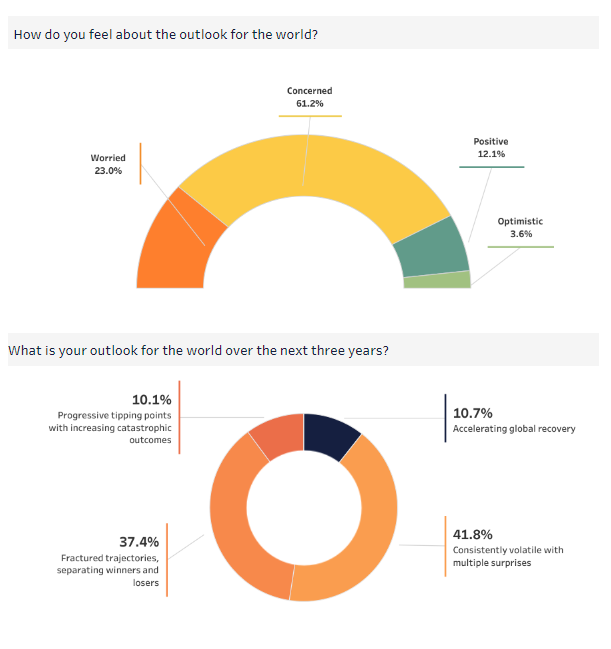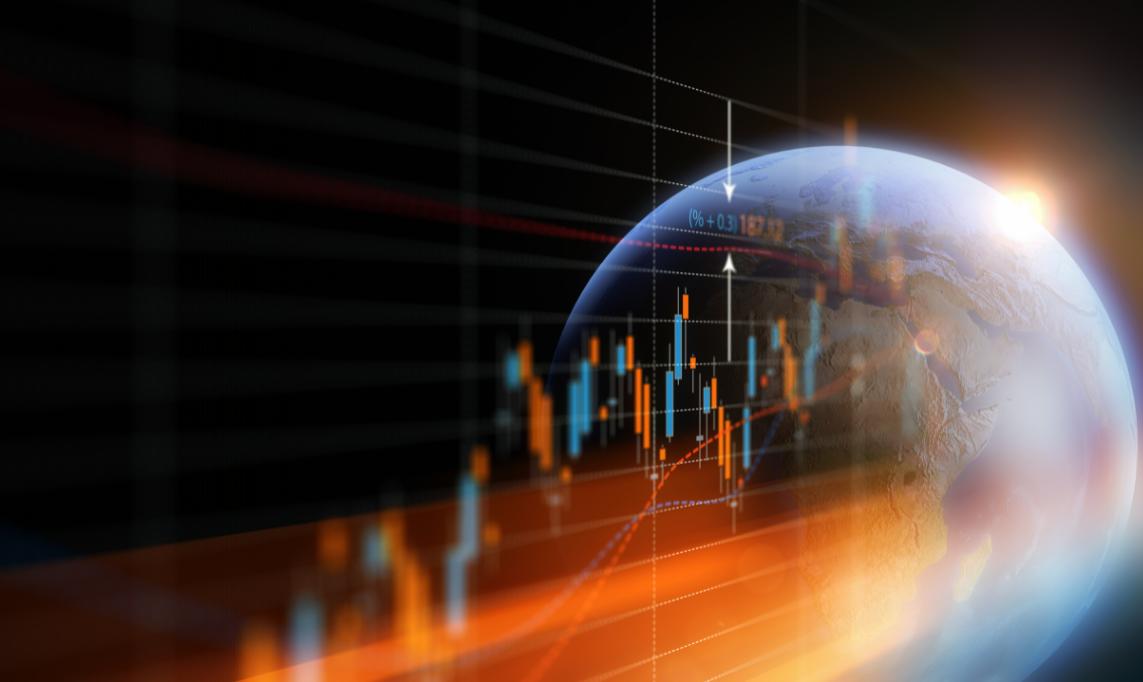
Global Risks Report 2023
What are the greatest risks threatening the planet's economic and social development today?
Experts recently surveyed by the World Economic Forum put it in black and white: in the short term, that is, over the next two years, the greatest concerns come from the rising cost of living, which began with the resumption of economic activities after the pandemic and was accentuated by the outbreak of the war in Ukraine, which caused a flare-up in commodity prices, especially in Europe. However, inflation, with its associated risks of social unrest, is not the only risk factor hanging over the destinies of humanity. In fact, the World Economic Forum listed many others in the latest edition of its Global Risk Report 2023, where it consulted as many as 1,200 international figures within its network of experts.

TOP GLOBAL RISKS: 2-5 YEARS (Fonte World Economic Forum)
Specifically, the risk factors identified by experts change depending on the time perspective taken. For the next two years, at the top is a possible energy and food supply crisis, which is precisely manifesting itself in a global cost-of-living crisis. Economic impacts have been mitigated by countries that can afford it, "but," World Economic Forum experts point out, "many low-income nations are facing multiple crises: debt, climate change and food security. Continued supply-side pressures risk turning the current cost-of-living crisis into a broader humanitarian crisis within the next two years in many import-dependent markets. The social unrest and political instability associated with these phenomena will not be contained in emerging markets as economic pressures continue to drain the middle-income bracket. Growing citizen frustration over losses in human development and declining social mobility, along with a widening gap in values and equality, are posing an existential challenge to political systems around the world. The election of less centrist leaders and political polarization among economic superpowers in the next two years may also further reduce the space for collective problem solving, shatter alliances and lead to a more volatile dynamic."

Fonte World Economic Forum
The perspective changes, however, if a longer time horizon is taken as a reference. Over the next decade, climate and environmental risks are indeed of greater concern. "The lack of deep and concerted progress on climate goals," the World Economic Forum writes in its report, "has highlighted the divergence between what is scientifically necessary to achieve the goal of zero carbon dioxide emissions and what is politically feasible." Resource scarcity in the short term in both the public and private sectors could reduce the speed and scope of climate change mitigation efforts. As a result, without significant policy changes or investments, the interaction between climate change impacts, biodiversity loss, food security, and natural resource consumption risks accelerating ecosystem collapse, threatening food supplies in the most vulnerable communities.
All the concerns of the opinion leaders surveyed by the World Economic Forum, however, have a common denominator whatever the time frame considered. In fact, what they all have in common is sustainability, that is, the need for economic development in accordance with ESG (Enviromental, Social and Governance) principles, i.e., respectful of the environment, attentive to social responsibility and transparent corporate governance. Only by moving toward sustainable development, in the short and long term, can the risks that threaten the future of the Planet today be defused.
Banca Generali's Sustainability Manager's comment:
Banca Generali has confirmed its commitment to Sustainability within the 2022-2024 Strategic Plan by placing it as one of the founding pillars of growth over the next three years. All risk factors identified by the experts of the World Economic Forum, both short- and long-term, are carefully considered by implementing concrete initiatives on an ongoing basis, this is whether it is to offer its customers products and services suitable to cope with the current macroeconomic context of high inflation and rising rates, or to raise awareness among Employees, Customers and Consultants on a more responsible use of Resources through Communication campaigns. The ambition to be the first Private Bank in terms of Service Value, Innovation and Sustainability, as represented in the Bank's Vision, guides and inspires its short-term actions and strategic objectives by aligning them with those of its main stakeholders.


